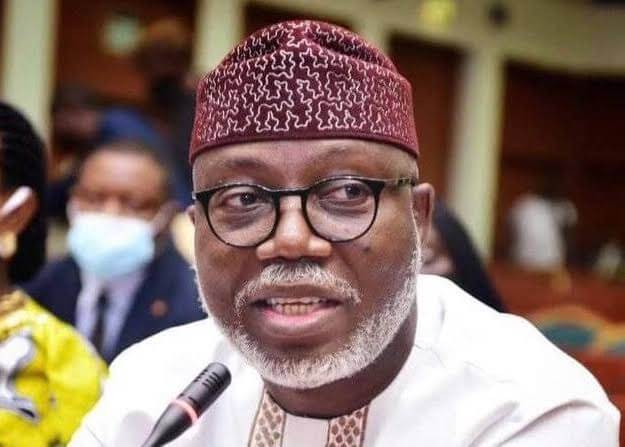Shortly after the 1999 Constitution of the Federal Republic of Nigeria was signed into law, there has been a consistent debate amongst stakeholders on the best form of democratic government for the country.
While some political pundits favoured the presidential system of government which Nigeria practiced between 1979 and 1983, and between 1999 and now, others believed that the only option available for the survival of Nigeria remains an urgent return to the parliamentary system which the British bequeathed to Nigeria at independence in 1960.
Although there were few conscious efforts to change the mode of governance in the country from presidential system to parliamentary democracy between 1999 and now through legislation, no remarkable achievement on the issue has so far been recorded beyond tangential alteration of the 1999 Constitution.
On February 18, 2024, some federal lawmakers made moves to end the current presidential system and revert to the parliamentary system previously in operation in the First Republic.
The lawmakers numbering about 60 introduced a constitution alteration bill on the floor of the House of Representatives setting in motion what could be a transition to a parliamentary system by 2031.
The first time such a move was made was in 2018 when 71 bi-partisan members of the House of Representatives sponsored a bill to replace the current presidential system of government with the parliamentary mode.
Fundamentally, one of the major differences between these two systems is that in a presidential system, the president is directly voted into power by the people while in a parliamentary system, the legislature is supreme and elects a prime minister from among members of parliament as head of government.
There is also no clear separation of powers in the system between the legislature and the executive as the ministers are also appointed from parliament.
However, the moves by some federal lawmakers to end the current presidential system and revert to the parliamentary system have continued to generate debates among Nigerians and experts.
“It is only when we have a parliamentary system in place that the states can become more viable. Only then, will the states begin to harness their resources.”
Former President Olusegun Obasanjo cautioned people calling for the return of a parliamentary system of government to replace the existing presidential structure.
Obasanjo said running a parliamentary system of government comes with its challenges.
Talking from experience, Obasanjo said in the first place, ‘the 24 years of practicing presidential system’ in Nigeria were not enough, adding that the most important thing to do was to devolve power and resources from the centre (federal) to the states and local governments level.
According to him, “No matter what you bring, if the political culture is not there—the same attitude, the same people, the same ways of doing things—we are wasting our time.”
Some other Nigerians are also of the opinion that to move the country to parliamentary system remains the best for Nigeria, and that was why the British who colonized Nigeria bequeathed the system to the country at independence.
Nigerians should not forget that it was the parliamentary system given to the country by our colonial masters, Great Britain. They gave us our constitution and they considered our makeup before introducing the system to us.
They believe they know it is the system that is best for us.
Secondly, the system is less expensive and it promotes unity.
Nigeria is diverse in culture, religion and tribe. The British knew about this diversity before they introduced the parliamentary system because it would suit our differences in culture and traditions.
We should remember that the presidential system was copied from America by the military and forced on us in 1979. It is alien to us.
The parliamentary system is much cheaper than the presidential system. Under the parliamentary system, the prime minister is selected among the ministers.
Under the parliamentary system, the states or the federating units are more powerful than the centre, but in the presidential system, the centre is more powerful than the states; it shouldn’t be so.
Even the recent calls for the creation of state police would not have arisen if we were in a parliamentary state because the state would have been given the power constitutionally to take care of things like security, natural resources and others.
It is our point that the bill for Nigeria to return to the parliamentary system is a welcome idea.
We support the move completely, and in fact, the situation in Nigeria today, calls for total revisit of the constitution.
The system would throw up good leaders, instead of the poor, incompetent and mediocre crop of leaders that the presidential system encourages.
A situation where every Tom, Dick, and Harry can just go to the centre and receive the blessing of one God-father will not augur well for us in the nearest future.
We can also not sustain a system where governors will sit down, fold their arms, and expect miracles to fall from the centre.
It is only when we have a parliamentary system in place that the states can become more viable. Only then, will the states begin to harness their resources.
This is because the constitution will spell out the percentage that the state or region will pay to the centre. That way, the centre will be less attractive and at that point, we will begin to produce good leaders because whether you have money or not, once you come from a community that can vouch for your antecedents that are good, you are good to go.
Over the years, the imperfections of the presidential system of government have become glaring to all, despite several alterations to the constitution to address the shortcomings of a system that has denied the nation the opportunity to attain its full potential.
Among these imperfections are the high cost of governance, leaving fewer resources for crucial areas like infrastructure, education, and healthcare, and consequently hindering the nation’s development progress, and the excessive powers vested in the members of the executive, who are appointees and not directly accountable to the people.
The parliamentary system is cheaper than the presidential system of government and also undermines the winner-take -all attitudes.
The parliamentary system is better, cheaper and less cumbersome. Presidential system is very expensive and cumbersome.

